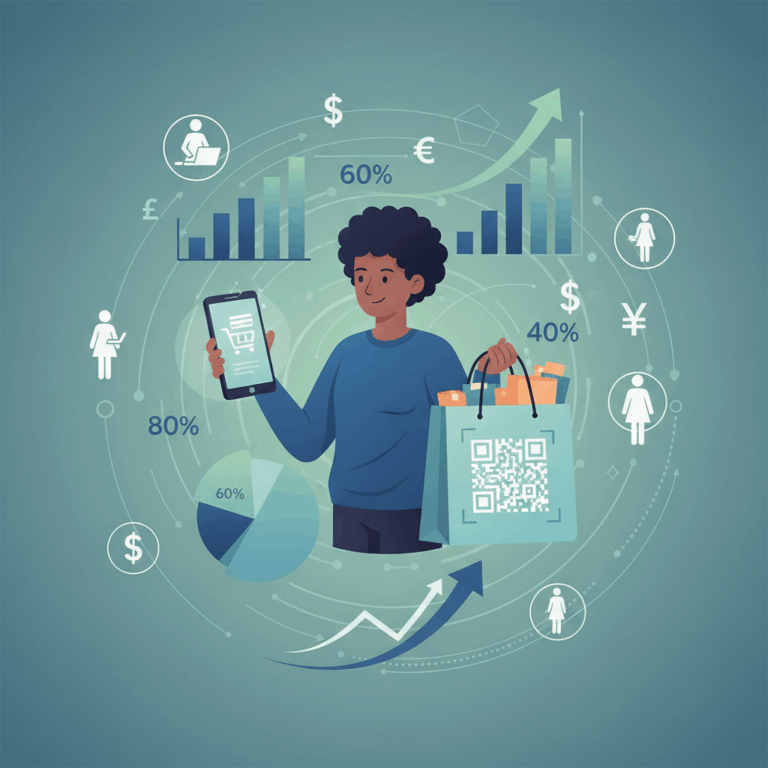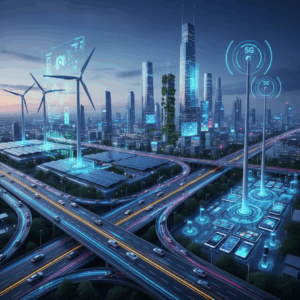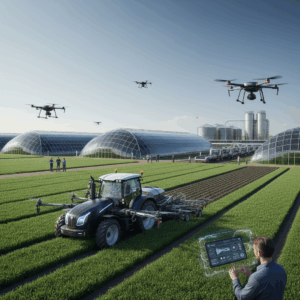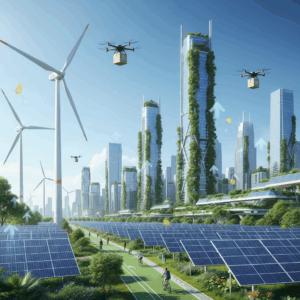Key consumer trends today
Today's consumer is increasingly demanding and aware of the social and environmental impact of their choices. Consumer trends are being shaped by digitalization and a strong focus on personalization.
These transformations are driving companies to offer tailored value propositions based on advanced technology and the ability to respond to individual preferences. As a result, the market is experiencing rapid and profound changes.
Among the leading trends are artificial intelligence, which allows for the design of unique consumer experiences, and sustainability, which is no longer optional but a growing market demand.
Personalization through artificial intelligence
Artificial intelligence is revolutionizing consumption by enabling the design of highly personalized products and services. Algorithms analyze behavior and preferences to anticipate needs.
This personalization enhances the shopping experience, making recommendations more accurate and customer service more efficient and proactive. AI becomes a key ally in building customer loyalty.
Furthermore, the automation of processes thanks to AI facilitates internal management, reduces time and costs, raising expectations about the quality and speed of responses offered by the market.
Growing importance of sustainability
Sustainability has gone from being an added value to an essential requirement for the modern consumer. The demand for ecological and ethical products is constantly growing, influencing purchasing decisions.
Consumers are willing to pay more for brands committed to the environment and social responsibility. This has driven a profound shift in business practices toward responsible production and reduced emissions.
Interesting fact
Adopting sustainable packaging and recyclable materials not only increases consumer confidence but also positions brands as leaders in responsible innovation within their sectors.
Transformations in commerce and the shopping experience
Commerce and the shopping experience are undergoing significant changes due to digitalization and technological evolution. These transformations impact both online and physical channels.
Consumer expectations are rising, demanding faster, more personalized, and more convenient processes. This is forcing companies to innovate to maintain their competitiveness and better serve their customers.
Furthermore, the integration of technology in physical stores and the development of e-commerce are changing the way people interact with brands and make purchases.
Growth and evolution of e-commerce
E-commerce is growing rapidly, driven by a preference for convenience and speed in shopping. Automated payments make the experience easier and more secure.
Digital platforms incorporate augmented reality and immersive experiences, allowing consumers to explore products before deciding, improving trust and satisfaction.
The omnichannel approach is becoming the norm, with integrated channels offering continuity and flexibility, adapting to the diverse purchasing habits and preferences of the modern consumer.
Hybrid experiences in physical stores
Physical stores are evolving into hybrid spaces that combine face-to-face interaction with advanced technology, creating a more attractive and practical experience for the customer.
The use of digital devices, augmented reality, and other interactive resources improves the relationship with the product and facilitates the resolution of doubts at the time of purchase.
These hybrid spaces seek to reduce friction in the commercial process, creating a balance between the convenience of the digital channel and the sensory experience of traditional commerce.
Automation and improved customer service
Automation enhances internal processes and customer service through chatbots and intelligent systems that respond quickly and accurately to the most common queries.
This efficiency raises the level of customer service, allowing for personalized and real-time responses, which increases satisfaction and loyalty.
Furthermore, the combination of artificial intelligence and automation frees up human resources to focus on strategic aspects, improving support and the overall experience.
Health and well-being as factors in consumption
Health and well-being have become fundamental pillars for consumers seeking products that support a healthy and balanced lifestyle. Self-care is now a key priority for many.
Customers increasingly value products that not only meet basic needs, but also contribute to improving their quality of life and overall well-being in areas such as nutrition, beauty, and technology.
This approach directly influences purchasing decisions, driving brands to develop solutions that incorporate these values into their offerings and market strategies.
Products geared towards self-care and healthy living
Products that promote self-care have become popular, including organic foods, natural supplements, and cosmetics with healthy and sustainable ingredients.
The demand for technological devices to monitor health, such as smart bracelets and wellness apps, is also booming, reflecting the growing interest in comprehensive personal care.
This trend translates into a diversified market where innovation is geared towards options that facilitate the adoption of healthy habits and contribute to physical and mental balance.
Integrating well-being into the value proposition
Companies that integrate wellness into their value propositions are better able to connect with health-conscious consumers, generating long-term trust and loyalty.
This integration involves not only offering healthy products, but also communicating values of social responsibility and sustainability linked to collective and environmental well-being.
In this way, corporate strategies are evolving towards holistic approaches that consider consumer well-being as an essential component of business success.
Impact of trends on the market and businesses
Current trends are transforming the market and demanding constant adaptation from companies. Digitalization, sustainability, and innovation define the new competitive landscape.
Today's consumer is more demanding and aware, which changes the rules of the game for companies to adjust their strategies and value propositions with agility.
Those organizations that respond best to these changes will be able to capture and retain the attention of customers who demand personalized and responsible experiences.
Business adaptation to a demanding consumer
Companies must deeply understand the consumer, who seeks products and services aligned with their values, quality, and impeccable experience.
Implementing advanced technology and sustainable approaches is key to effectively responding to growing demands for speed, personalization, and ethics.
Innovating and being flexible allows companies to cope with market volatility and build stronger, more trusting relationships with their customers.
Customer loyalty and differentiation through innovation and social responsibility
Customer loyalty is achieved through innovative proposals that integrate social and environmental responsibility, generating an emotional bond and added value for the consumer.
Socially responsible brands not only attract customers, but also differentiate themselves in a saturated market, building long-term reputation and preference.
Investing in sustainable and truthful innovation transforms companies into reliable benchmarks that inspire loyalty and strengthen their competitive position.






